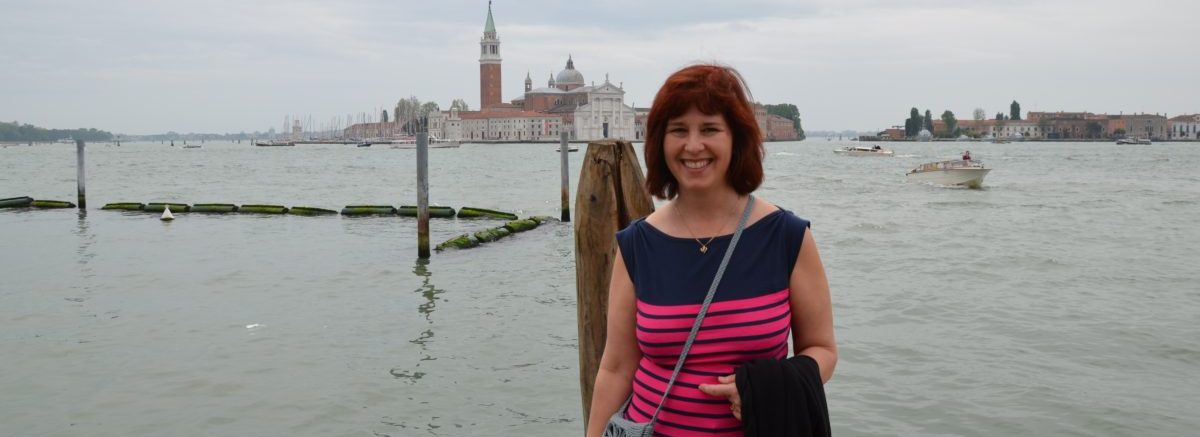 Being a child means being dependent on others and having little control over what happens to you. If your vulnerability is protected, you spend your childhood learning life-skills that prepare you for adulthood. If you are not protected, you spend your childhood learning survival skills. Adulthood is either thrust on you too soon or catches you unprepared.
Being a child means being dependent on others and having little control over what happens to you. If your vulnerability is protected, you spend your childhood learning life-skills that prepare you for adulthood. If you are not protected, you spend your childhood learning survival skills. Adulthood is either thrust on you too soon or catches you unprepared.
Children Work Hard to Get Their Needs Met
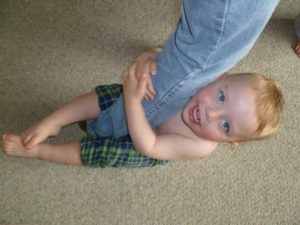 All children initially try to get their needs met by crying, demanding, or throwing temper tantrums. In a nurturing environment, the child quickly learns this approach doesn’t work. In a chaotic environment the child often learns it’s the only thing that works. In an abusive environment, children learn that nothing they do ensures their needs are met consistently, if at all.
All children initially try to get their needs met by crying, demanding, or throwing temper tantrums. In a nurturing environment, the child quickly learns this approach doesn’t work. In a chaotic environment the child often learns it’s the only thing that works. In an abusive environment, children learn that nothing they do ensures their needs are met consistently, if at all.
A Child Learns What Works and Doesn’t Work
 Rather than temper tantrums and tears, a child in a nurturing environment learns that being considerate of others, doing your best, being honest, accepting responsibility, and compromising, are important skills for getting your needs met.
Rather than temper tantrums and tears, a child in a nurturing environment learns that being considerate of others, doing your best, being honest, accepting responsibility, and compromising, are important skills for getting your needs met.
In an abusive or chaotic environment, the above skills don’t necessarily work and they may actually make things worse.
In an unpredictable or unsafe environment, children must learn to adapt and survive. They must focus their energy on trying to keep safe and on coping as best they can. They must struggle to find what works.
Survival Strategies
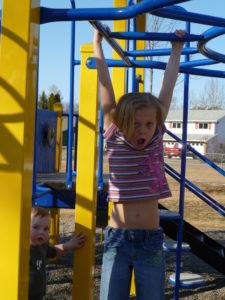 In an abusive home, many children learn their thoughts, feelings, needs, and wants are not important and speaking up only gets them in trouble. They learn not to question authority and to avoid conflict at all cost. Survival means not showing your true emotions and doing whatever it takes to please others and keep the peace.
In an abusive home, many children learn their thoughts, feelings, needs, and wants are not important and speaking up only gets them in trouble. They learn not to question authority and to avoid conflict at all cost. Survival means not showing your true emotions and doing whatever it takes to please others and keep the peace.
The child may be hyper-sensitive to the environment and may become an expert at reading body language and gauging other people’s moods, needs, and wants.
For other children, fighting back is the best way to survive. They learn that being meek and quiet only encourages more abuse. They learn to use anger, manipulation, or tears to gain control and avoid being hurt. They learn that demanding their way is the best way to be heard.
As children, we don’t have the skills or ability to change our circumstances; instead we become experts at understanding and adapting to our environment.
While children may learn strategies to decrease the frequency or intensity of the abuse, there is little they can do to stop it. Even telling another adult is no guarantee the abuse will stop. Given their powerlessness, children must focus on ways to cope.
Coping With the Pain of Abuse
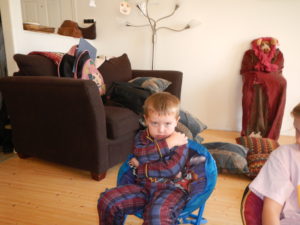
Pain is subjective; a highly sensitive child perceives a situation as more painful than a more resilient child. It is not what happens to you that determines its impact, it is your perception of what happens. If you are being hurt, regardless of how or why, you need to find a way to cope.
Some children cope by shutting themselves off from their emotions and refusing to feel. Others lose themselves in day dreams and ignore what goes on around them and to them.
Some children take on the blame, believing the abuse is their fault. Blaming themselves allows them to continue to love the person who is hurting them, and allows them to make sense of their world.
Other children bury themselves in sports or become top students. Excelling at sports or school gives them recognition and helps them feel better about themselves. High achievements may even decrease abuse at home or among peers.
Older children may engage in suicide attempts, self-injurious behavior, casual sex, or drugs and alcohol to dull the pain. Children young and old may turn to food for comfort.
What Works for a Child Doesn’t Always Work for an Adult
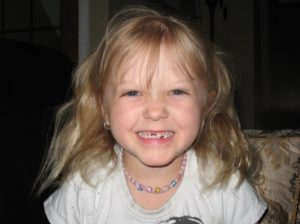 Some survival strategies you learned as a child may come in handy as an adult. It’s helpful to accurately read other people’s emotions in order to avoid unnecessary conflict.
Some survival strategies you learned as a child may come in handy as an adult. It’s helpful to accurately read other people’s emotions in order to avoid unnecessary conflict.
It serves you well to know how to work hard and succeed, despite many obstacles. In some situations, your quick anger is appropriate and helpful.
While some survival strategies from childhood may still be useful, many get in the way of having satisfying relationships and achieving important goals.
Unhelpful Strategies From Childhood
Some people continue to keep quiet and avoid making waves in situations where it’s to their advantage to speak up. They put up with abuse and stay in bad relationships; adapting and not demanding change or leaving. They may still believe in ignoring their own needs and wants in favor of keeping the peace. They deny or minimize their circumstances, never really trying to find solutions other than hoping someone else will change.
Children who learned that anger worked and made them less vulnerable, may continue to bully and push their way through every situation. They may avoid looking too closely at themselves and may lack empathy for others to avoid painful emotions.
Some people still cope by eating, drinking, drugging, or in some other way, dulling their emotions.
From a child’s limited ability to affect change, any and all of these strategies make sense. To an adult who can affect change, these strategies more often than not, keep you stuck.
As Adults We Have Control Over Our Own Lives
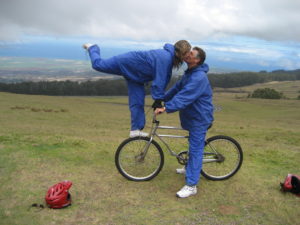 As adults, we are no longer powerless and at the mercy of those around us. We can seek out the things that bring us joy and limit the things that hurt us.
As adults, we are no longer powerless and at the mercy of those around us. We can seek out the things that bring us joy and limit the things that hurt us.
We can surround ourselves with people who love us and treat us well, and limit our contact with people who don’t. We are not dependent on others to meet our needs because we can meet our own needs. We can seek out those whose needs and wants are compatible with our own so we can have mutually satisfying relationships.
We don’t have to fear other people’s anger because we have the resources to keep ourselves safe. We don’t have to fear conflict because we have just as much right to our opinion as anyone else.
If we make a mistake, we can accept responsibility for our behaviour and accept the consequences. We can make choices and decisions based on the fact that we are in control of ourselves and our own lives. No one can ever “make” us do anything ever again.
In order to exercise all our privileges, rights, and responsibilities as an adult, we often need to replace the survival skills from childhood with the effective skills of adulthood.
Life-Skills Help Navigate Rough Waters
 Like language, life-skills come naturally and easily when we are exposed to them regularly in childhood. Learning the same skills as an adult is often tedious and painful.
Like language, life-skills come naturally and easily when we are exposed to them regularly in childhood. Learning the same skills as an adult is often tedious and painful.
If you find that the strategies that worked well for you as a child are no longer working, you can replace them with more effective skills.
To learn more about effective skills, follow the suggested reading and additional posts below. For specific DBT skills go to the DBT Skills in the menu.
“Beautiful souls are shaped by ugly experiences.”
Related Posts
3-Easy Steps to Self Acceptance
Pain is Inevitable, Suffering is Optional
How to Stop Faulty Thinking Habits
Are you Listening? Validate Yourself
Suggested Reading
8 Reasons it’s Hard to Overcome a Tough Childhood
